Editorial
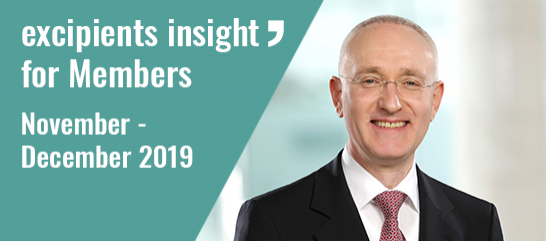
Dear Members,
Season's greetings and a warm welcome to the last edition of Excipents Insight for 2019.
No doubt you’re all busy with end-of-year activities and preparing for the new decade! From IPEC Europe’s perspective, this will also bring us into a new phase as we ready ourselves to introduce our next five years vision at our annual meeting in Aix-en-Provence, France. The Board met at the end of November and were aligned that our current areas of focus are very much those that we need to continue doing to carry us into the ‘twenties’. At the heart of what we’d like to achieve is very much represented in our tag line, ‘the Voice of Excipients’. This is a great statement and of course, we stand behind it need but saying it is one thing, being it is another! The next stage of our journey has to make sure we realise this, so our goal is to ‘Be recognised as the Voice of Excipients in Europe’ and we’ll be sharing more on this at the AGM on how we plan to go about this.
Reflecting on the progress that we’ve made through our Agenda 2020, some of this year’s highlights exemplify how we can have greater impact operating through a network with other associations. Our collaborative efforts have delivered some great ‘products’ on recent regulatory hot topics in Europe, such as microplastics and nitrosamines. Working for example, with sister IPECs and industry groups, this integrated way of working I see as a big part of our future state and will lead us to greater success. Communication is key and I believe we’ve made quantum- leap improvements in this direction. Having embarked on a very successful rebranding programme and a more outward-facing strategy, we present ourselves in a very positive way and now in a new premise, too, we are well positioned for a bright future!
So, as the year and indeed this editorial draw to a close, it remains for me to thank you for being part of IPEC Europe, contributing as you do and making the association the success that it has become. And long may it continue! I wish you a healthy and prosperous 2020 and hopefully, I will see many of you in Aix-en-Provence for our annual gathering.
Until the next time,
Frithjof Holtz
IPEC Europe Chair
A Master File System for Excipients in Europe is a Must!
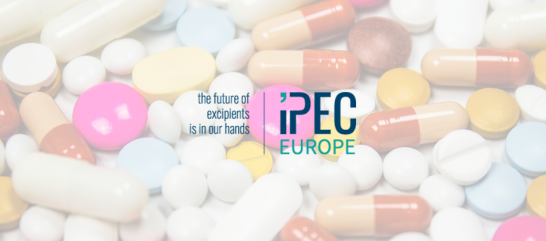
A Master File System for Excipients in Europe is a Must!
- The absence of an Excipient Master File (EMF) system in Europe is a barrier to using novel excipients and innovation in the healthcare sector, say IPEC Europe and EFCG.
- We believe this gap in Europe could impact access to medicines.
- Could you or a colleague help us build a case for a European EMF system by answering this survey?
- Responses will be anonymised, and data aggregated in strict compliance with EU competition law. Confidentiality guaranteed!
Click here to access the survey : European Master File survey
IPEC Europe and EFCG believe that the absence of an Excipient Master File (EMF) system in Europe is a barrier to the introduction of novel excipients* and to innovation in the healthcare sector.
Novel excipients can play a pivotal role in the development of advanced drug delivery systems and enhance the quality and the safety of medicines for patients. Currently, a novel excipient can only be introduced in Europe as part of the drug product marketing authorisation meaning that details on excipient quality, manufacturing and safety are shared with the drug product applicant.
In Japan, USA, Canada and China for example drug developers can rely on systems that allow an excipient manufacturer to submit the necessary details on their product to regulatory authorities without disclosing proprietary manufacturing information to third parties. A clear regulatory pathway guarantees IP protection for novel excipient producers. More importantly, this can encourage the development of innovative drug products, delivering increased access to better and safer medicines for patients.
IPEC Europe and EFCG advocate for the introduction of an EMF system in Europe for novel excipients and would like to call on its members and broader to help bridge this gap. We must be able to demonstrate that the absence of such a process does and could have impact on access to medicines.
Please help us gather information with as many examples as possible to build a case for an Excipient Master File system in Europe for novel excipients by answering the questions hereinafter. Do not hesitate to share the link of this survey with your colleagues and network .
Your anonymised responses will constitute a dataset which will be aggregated in strict compliance with EU competition law, before reporting on the outcome of this survey.
*Novel excipients: a product, or a material or a composition that has not been previously used in an approved drug product or that has been previously used in an approved drug product but which will be used for a new route of administration or at a higher dose than previously approved, or a new co-processed excipient made from two or more previously approved excipient” .
Questionnaire for Excipient Nitrosamines Risk Evaluation
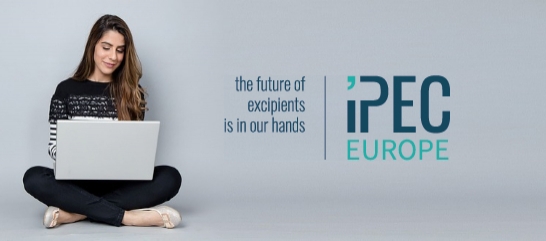
Questionnaire for Excipient Nitrosamines Risk Evaluation
IPEC Europe developed a questionnaire in consultation with other pharmaceutical-related associations (including EFPIA) to facilitate gathering information on pharmaceutical excipients for drug product manufacturers to perform nitrosamine risk evaluations, required by several regulatory authorities globally.
IPEC Europe strongly encourages both excipient manufacturers and their drug product manufacturer customers to use this standard format. This will greatly facilitate timely data collection from excipient manufacturers enabling a more efficient process of conducting the said risk assessments.
Download the form
IPEC Europe welcomes any feedback on the form (info@ipec-europe.org).
“Transportation of Pharmaceutical Excipients” – GDP Committee status report
IPEC Europe’s Good Distribution Committee prepared this document to describe the regulatory background and current state of “transportation of pharmaceutical excipients”.
In today’s globalized world, the supply chain (SC) of medicinal products (MPs) and their starting materials has become increasingly complex and the more players that are involved in the process brings increasing risk to the quality of the product.
This document is intended to provide the basis for the potential preparation and publication of a new IPEC Europe Guidance on the Transportation of Pharmaceutical Grade Excipients, and was written on the basis of a member survey conducted by IPEC Europe in 2017.
Download the document here (Member’s Lab).
Further work on this topic will be done by the GDP Committee.
Minutes of all 2019 meetings are available in the Member’s Lab.
The Committee will re-convene in Aix-en-Provence on Wednesday 5 February.
Please contact the Chair Dr. F. Milek or the Secretariat for further information or questions.
2020 Annual Excipients Forum: an opportunity not to miss!
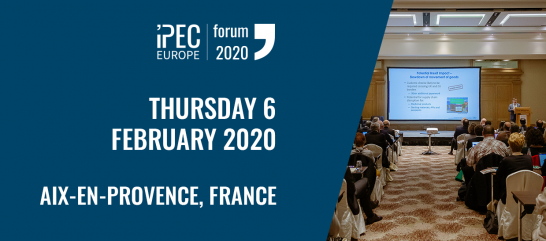
Don't miss out on the opportunity to meet regulators and colleagues at the 2020 IPEC Europe Annual Excipients Forum.
99% of attendees in 2019 rated this event "Very good" or "Excellent" so guarantee your place NOW! Here are a few highlights from the programme to convince you to join us!
Since 2017, the regulatory framework for the registration of excipients in China has evolved extensively. Come and hear the latest developments and industry tips on how to negotiate your way through the regulatory maze.
Yuwei Heinzel, Merck KGaA will address China’s dossier requirements, compliance with the Chinese Pharmacopoeia and their impact on the pharmaceutical industry. And following on, Cécile Subra, Gattefossé, will lead us through a unique company experience of the Chinese bundling review approval. Not to be missed!
If this wasn’t enough, this full-day conference has a lot more to offer, not least European Directorate of the Quality of Medicines’s current and future regulatory perspectives. As EDQM is a cornerstone of excipients quality and control in Europe it’s always good to keep up with their forward thinking. What about Excipients for use in parenteral products? Listen, learn and engage in the debate with our panel of experts assembled to bring everyone up to speed on this ‘forever’ discussion topic of critical importance. And at the time of the Forum itself, the latest deadline for the exit of the United Kingdom from the European Union will have happened just days before! Perfect timing for an update on Brexit And its impact on excipients. Everyone will be talking about it!
Sponsorship Opportunities
Interested in helping IPEC Europe to organise once again a high-level event? Discover the Sponsorship Opportunities and do not hesitate to contact the Secretariat to discuss details, arrangements and availabilities.
CPhI Worldwide: Report
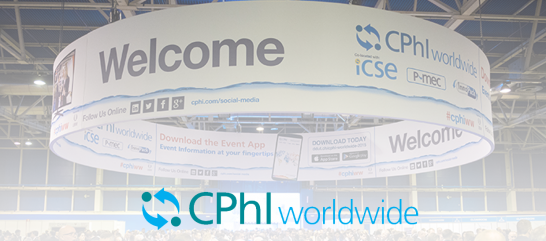
IPEC Europe attended CPhI Worldwide in Frankfurt, Germany from 5 to 7 November. Good contacts were made with prospective members to present the association’s activities by several Board members and the Secretariat.
Frithjof Holtz presented the position paper “The case for a Master File System for Novel Excipients in Europe” on Thursday 6 November. It was an opportunity for the whole industry to learn more about this joint initiative of IPEC Europe and EFCG (European Fine Chemicals Group), a sector group of CEFIC. Questions raised from users, producers and regulators showed good interest in this issue.
Webinaire: Eléments Essentiels des Bonnes Pratiques de Fabrication
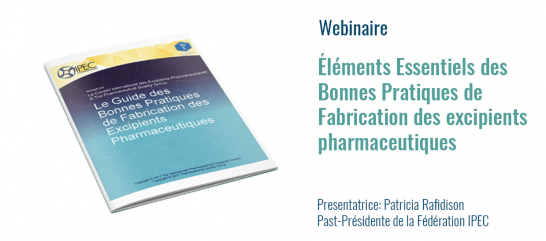
IPEC Europe held its first webinar in French on November 18, covering the essential elements of the Good Manufacturing Practices for pharmaceutical excipients.
The online event, hosted by Patricia Rafidison, Past President of IPEC Europe and Past President of IPEC Federation, was held after the publication of the French translation of the 2017 IPEC – PQG GMP Guide.
Participants were able to get a broad overview on how to implement the guide in as practical context. The guide in French language is available on the IPEC Europe website.
If you were unable to attend this webinar and wish to watch it, don’t panic!
You will be able to access the recorded version of this webinar along with past IPEC Europe webinars as webcasts. Further details will be shared in due course.
Let the IPEC Europe Secretariat know your views on future webinars: send a message to propose a topic.
IPEC Europe Committees in Aix-en-Provence
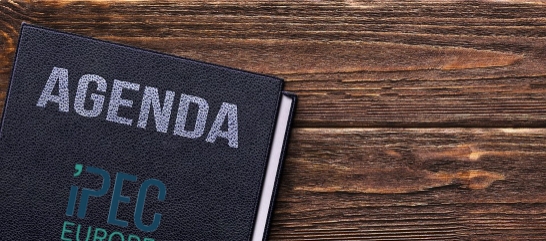
Participating in the Annual Forum enables all Members of IPEC Europe to participate in the activities of the association.
As in previous years, Members can attend Committee and Task Force meetings on Wednesday 5 February. All meeting rooms are on the -1 level floor of the Hotel Renaissance.
The Quality and Regulatory Affairs Committee will convene at 14:00, room “Caccavale 1-2”.
The first meeting of the year of the Good Distribution Practices Committee will take place in the “Vincent Olinet” meeting room as of 14:00.
The Task Force on Multicompendial Compliance will have its first face-to-face meeting in the “Julie Dawid” meeting room from 15:00. The inaugural meeting of the Lactose Task Force will convene in the “Julie Dawid” room at 17:30.
If you wish to know more about these working groups and being involved in their activiites, do not hesitate to ask the Secretariat for further information.
The Annual General Meeting of IPEC Europe will take place on Friday 7 February.
During the AGM, the Board of the association will review the past year, identify and further discuss with members the challenges and objectives for 2020. Committees updates will feature on the agenda.
The election of two Board members, one from the Users group, one from the Producers, will take place, too. Only Official Representatives of Members or their authorised delegates may vote.
All members are invited to attend the Annual General Meeting.
IPEC Europe Board: updates
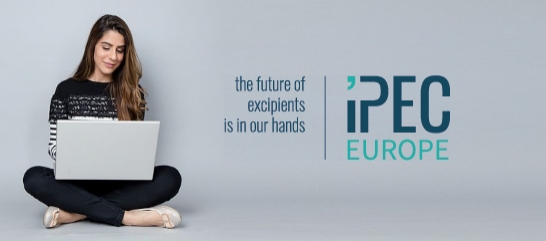
The last meeting of the Board in 2019 was held in Stuttgart on 27 and 28 November. Taking stock of achievements during the year, preparations for 2020 and beyond were discussed.
The Board revisited the strategic objectives set in our ‘Agenda 2020’ and agreed – for the most part – that the identified ‘pillars’ of strategic focus are still relevant to IPEC Europe’s forward path. A first draft of an ‘Agenda 2025’ was outlined keeping in mind that for each ‘pillar’, objectives must be set to realise the IPEC Europe vision.
The ‘Agenda 2025’ along with the objectives for 2020 will be presented at the next Annual General Meeting on 7 February 2020 in Aix-en-Provence on which members will vote. Other on-going projects were reviewed.
Quality and Regulatory Affairs Committee: updates
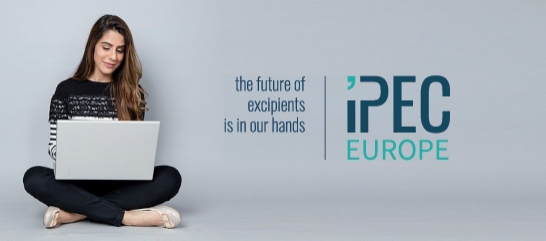
The Core team of the Quality and Regulatory Affairs Committee met on 29 October in Brussels, Belgium, and held the final call of the year on 2 December.
Many key topics were discussed, including distribution of the Primary Packaging Material discussion document, ICH Q3 updates, Nitrosamines, and ECHA microplastics restriction proposals.
For further information, read the highlights of the meeting on the Member’s Lab.
The next meeting will take place in Aix-en-Provence on 5 February 2020.
EXCiPACT looks back on successful 2019
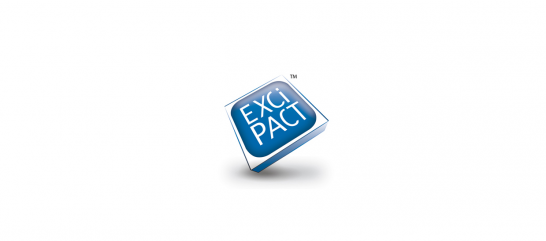
We have now achieved 100 certifications since launch in 2013 and at least a 25% growth in GMP/GDP certifications since December 2018. Given this strong performance, we expect to exceed our overall 2019 financial targets to provide us with a solid platform for continued global growth in 2020 and beyond. To improve our presence in the USA, we plan to retain an experienced US-based consultant to help us with this ‘on-the ground’. With the support of our members and the IPEC Europe Secretariat, we plan to comply with a new Belgian law for ASBL organisations early in the New Year. A new promotional device and brochure is in preparation for launch at the IPEC Europe event in Aix-en-Provence in February.
Tony Scott, Senior Adviser, EXCiPACT asbl
New premises for the European Medicines Agency
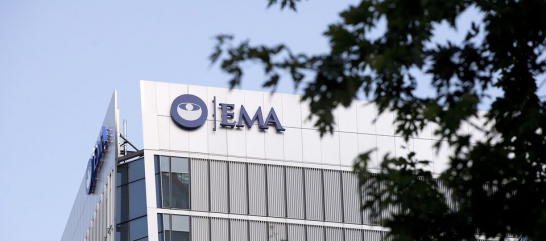
The EMA has reached the last step of the Agency’s relocation to the Netherlands in mid-November with the handover of the newly-built premises in Zuidas, Amsterdam by Dutch authorities.
The Agency stated that most staff will work remotely until mid-January to allow equipment and furniture to be moved to the Zuidas building. Staff will be able to move in the new spaces as of 13 January.
The transition to the Zuidas building represents a second move in under a year for EMA. The agency relocated its headquarters from London to Amsterdam earlier in March. The temporary building that hosted the agency in the remainder of 2019 helped the EMA to maintain business continuity despite reducing the activities … .
Despite the logistical issues, the European agency completed its Mutual Recognition Agreement with the FDA that enables recognitions of good manufacturing practice (GMP) inspections of all 28 member states of the European Union by the Food and Drug Administration.
Further information is available on the EMA website.
Picture: European Medicines Agency
EDQM opens secondary site for reference standards

The European Directorate for the Quality of Medicines and Healthcare (EDQM) opened a secondary site for housing contingency stocks of European Pharmacopoeia reference standards in Ars-Laquenexy, France.
The directorate informed that the rationale behind this move is to mitigate risks of disruptions to supplies of Ph. Eur. Reference standards. These stocks will be used in case of unexpected disruptions to supply from the primary site in Strasbourg, where the Agency is based.
The new site will house the full portfolio of about 3000 reference standards which are used and distributed in more than 120 countries.
More information is available on the Directorate website.
Picture: European Directorate for the Quality of Medicines and HealthCare (EDQM)
Ph. Eur. launches public consultation on Determination of elemental impurities
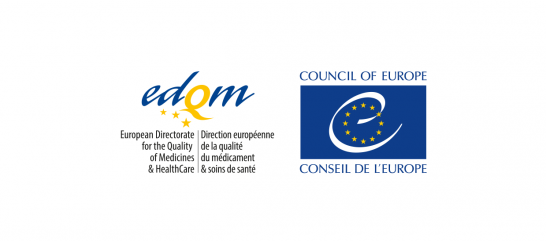
The European Pharmacopoeia (Ph. Eur.) Commission is consulting its stakeholders on general chapter 2.4.20. Determination of elemental impurities. The deadline for comments is 31 December 2019.
Updated in the context of discussions within the Pharmacopoeial Discussion Group (PDG), the draft corresponds to the the stage 2 version 4 text in the Pharmacopoeial harmonisation process. This text is intended to become the new harmonised standard for elemental impurities testing.
The European Pharmacopoeia mentions that "while this revised version comes with a completely new structure, it retains the flexible approach of the previous version of chapter 2.4.20".
According to the draft, the user is free to use any method provided it satisfied the corresponding validation requirements as detailed in the chapter.
More information on Pharmeuropa 31.4 (October issue)
Calendar
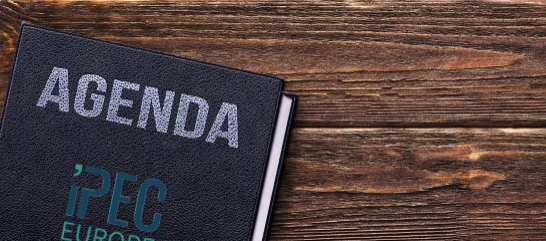
| Group |
Q1-2 2020 |
| IPEC Europe Board |
22 January, Brussels, Belgium
19 March, Darmstadt, Germany |
| Good Distribution Practices Committee |
5 February, Aix-en-Provence, France
28-29 April, Brussels, Belgium |
| Quality and Regulatory Affairs Committee |
5 February, Aix-en-Provence, France |
| Multicompendial Compliance TF |
5 February, Aix-en-Provence, France |
| Lactose TF |
5 February, Aix-en-Provence, France |
Further details are available in the article: "IPEC Europe Committees in Aix-en-Provence". All listed meetings will take place at the Hotel Renaissance Aix-en-Provence.
Recommended reading

ICH Assembly meeting in Singapore
The International Council for Harmonisation (ICH) informed on the achievements attained following the ICH Assembly meeting in Singapore in November.
International Council for Harmonisation
Titanium Dioxide : European Parliament Environment Committee dismiss objection to classification
On December 3rd, a majority of MEPs in the Environment Committee (ENVI) of the European Parliament did not support a resolution, tabled by the European Conservatives and Reformists (ECR) group, that objected to the proposal to classify titanium dioxide (TiO2) as a suspected carcinogen (category 2) by inhalation.
TDMA / DeHavilland
EU dialogue with Chinese authorities on medicine regulation
Regulatory dialogue on pharmaceuticals is ongoing between the European Medicines Agency and the NMPA (People’s Republic of China). The Deputy Commissioner of the National Medical Product Administration, Dr Chen Shifei, visited EMA on 25 October together with a delegation. Topics discussed included good manufacturing practice (GMP) standards for API and European Commission’s strategic approach to pharmaceuticals in the environment, among others.
European Medicines Agency
Update: Information for the package leaflet regarding ethanol used as an excipient in medicinal products for human use
The annex to the EC guideline on “Excipients in the labelling and package leaflet of medicinal products for human use” has been updated in November to include changes in ethanol.
EMA reminds marketing authorisation holders that, for already authorised medicines, they should use the first opportunity to implement the wording in compliance with the revised annex.
European Medicines Agency
ISPE & PDA create guide to improving quality culture in pharmaceutical industry
The Parenteral Drug Association (PDA) and the International Council for Harmonisation (ICH) announced in October the joint publication of a guide for Root Cause Analysis (RCA) to help the pharmaceutical industry improve quality culture by providing recommendations for tools, techniques, and processes.
ISPE - PDA Guide
New modalities, new methods and new thinking to solve old problems – CPhI Annual Industry Report 2019
The CPhI Annual Report, released at CPhI Worldwide 2019 in Frankfurt, is a comprehensive and critically important publication that analyses key trends and innovations forecast by our panel of world class experts.
CPhI Annual Industry Report 2019
Malaysia: updated submission guidelines for APIs and atypical actives
Malaysian authorities have published in October updated guidelines for submission of Active Pharmaceutical Ingredient (API) and atypical actives. A list of Atypical actives is detailed in Appendix 4; Appendix 5 includes a summary of required documents for atypical actives information.
National Pharmaceutical Regulatory Agency (NPRA)
|